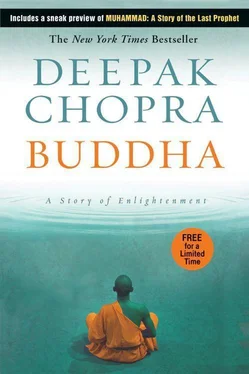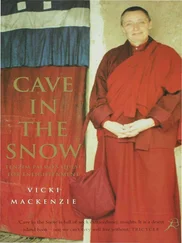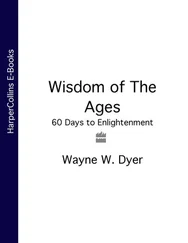But we would be wrong to be disappointed in our hero. Enlightenment was just the beginning of Buddha’s spiritual ascent, which was spectacular by any measure. Buddhism caused an earthquake in the spiritual life of India, crushing the privileges of the Brahmin caste and raising even the despised untouchables to spiritual dignity.
Buddha blew through the temples like a strong wind and with the simplicity of genius reduced the human predicament to one key issue: suffering. If suffering is a constant in every life, he said, then until there’s an end to suffering, enlightenment is pointless. Equally pointless is talk of God or the gods, heaven and hell, sin, redemption, the soul, and all the rest. This was reform of the severest kind, and a lot didn’t stick. People wanted God. Buddha refused to speak on the subject of whether God even existed. He adamantly denied that he himself was divine. People wanted the comfort of rituals and ceremonies. Buddha shunned ceremony. He wanted each individual to look inside and find liberation through a personal journey that began in the physical world and ended in Nirvana, a state of pure, eternal consciousness. Nirvana is present in everyone, he taught, but Nirvana is like pure water lying deep beneath the earth. Reaching it requires concentration, devotion, and diligent work.
It’s no wonder that Buddha’s call to awakening proved so enticing and so difficult. The Middle Way, which gained its name because it was neither too harsh nor too easy, proved very appealing, but the journey to Nirvana is solitary and contains little in the way of entertaining scenery. Yet there was no arguing against the teaching. Everything Buddha preached grows logically from the First Noble Truth, which also happens to be the first thing Buddha said to the five monks after he became enlightened: life contains suffering. The next three teachings sound more like modern psychotherapy than conventional religion:
FIRST NOBLE TRUTH: Life contains suffering.
SECOND NOBLE TRUTH: Suffering has a cause, and the cause can be known.
THIRD NOBLE TRUTH: Suffering can be brought to an end.
FOURTH NOBLE TRUTH: The path to end suffering has eight parts.
Now we’ve gone beyond the role of the storyteller, since these four simple statements created an explosion of theology that spread throughout Asia and the rest of the world. Thanks to Buddha’s decades of teaching, a cadre of disciples totally committed to the Buddhist path crossed the Himalayas and journeyed everywhere it was possible for sandals to tread. The list of cultures that these ascetic wanderers revolutionized is staggering: Tibet, Nepal, China, Japan, Korea, Sri Lanka, Thailand, Cambodia, Burma, Vietnam, and far into Malaysia and Indonesia. In many cases a handful of Buddhist missionaries actually created a new culture. Any outside observer can only stand back in awe.
Why did people accept this new teaching so readily? Because the First Noble Truth was undeniable. People knew that they were suffering, and instead of showing a way out, their old religions gave them surrogates, in the form of dogma, prayers, rituals, and the like. At its simplest, Buddhism walked into the village square and said, “Here are eight things that will open the way to peace instead of pain.” The Eightfold Path asks for each person to change how the mind works, plucking out what is wrong, inefficient, and superstitious, then exchanging those outworn habits for increasing clarity. In other words, the waking-up process, which Buddha experienced in one night, is laid out as a lifelong program:
Right view or perspective
Right intention
Right speech
Right action
Right livelihood
Right effort
Right mindfulness
Right concentration
Some of these steps sound natural. We all want to believe that our actions and words are virtuous. We don’t want to go wrong in our effort and intentions. Other parts of the path need special guidance. What is right mindfulness? Right concentration? These aspects have their roots in the meditation practices of Yoga, which Buddha also reformed and brought within reach of ordinary people.
As a storyteller, I didn’t feel it was my place to spread Buddhism. That’s best left to the modern equivalents of the wandering missionaries who first preached Buddhism. It would be unseemly for me to step on their toes. But I’d like to speak to you, the reader, who might be coming to Buddha from the cold. I came to Buddha that way, and I asked the obvious question: What can this teaching do for me? Is there something that will open my eyes and make me more awake, right this minute?
Personally, I found three things. They are known as the three Dharma seals, or to put it in plain English, three basic facts about Being. They spoke to me far more than the Middle Way because of their universality, which extends far beyond the boundaries of religion.
1. Dukkha
Life is unsatisfactory. Pleasure in the physical world is transient. Pain inevitably follows. Therefore, nothing we experience can be deeply satisfying. There is no resting place in change.
2. Anicca
Nothing is permanent. All experience is swept away in flux. Cause and effect is endless and confusing. Therefore one can never find clarity or permanence.
3. Anatta
The separate self is unreliable and ultimately unreal. We apply words like soul and personality to something that is fleeting and ghostly. Our attempts to make the self real never end but also never succeed. Therefore, we cling for reassurance to an illusion.
READING THIS, CAN anyone escape being shaken to the core? Buddha wasn’t just a kindly teacher who wanted people to find peace. He was a radical surgeon who examined them and said, “No wonder you feel sick. All this unreal stuff has filled you up, and now we have to get rid of it.” Naturally, a lot of listeners ran back to conventional religion, and just as many ran back into materialism, which promises that body, mind, and the physical world are absolutely real.
Why should we accept Buddha’s word that they aren’t? That, I think, is the crucial question. There’s not much challenge in accepting that one’s life contains suffering, and only a small challenge in accepting that flux and change create dissatisfaction. Both facts seem psychologically self-evident. But to accept that the entire world, and everyone in it, is an illusion? That’s an enormous challenge, and it requires a complete shift in consciousness to meet it.
The word illusion has a host of meanings, and some are very enticing. The illusion, for example, that when you fall in love it will last forever. The illusion that you will never die. The illusion that ignorance is bliss. Buddha saw the danger hidden in these enticements. He rarely spoke harshly, but I can imagine him bursting all these bubbles: love ends, everyone dies, ignorance is folly. But if he had stopped there, Buddha would have wound up a tiresome moralist.
His definition of illusion was so absolute it almost freezes the blood. Whatever can be seen, heard, or touched is unreal. Whatever you cling to as permanent is unreal. Whatever the mind can think of is unreal. Does that leave anything free from the withering grip of illusion?
No.
Yet once we get over our shock, Buddha declares that with a shift in consciousness, reality reveals itself. Not as a thing. Not as a sensation. Not even as a wisp of thought. Reality is purely itself. It is the ground of existence, the source from which everything else is projected. In the most basic terms, Buddhism exchanges a world of infinite projections for the single state of Being. A freedom so complete it doesn’t have to think of freedom or say its name.
Which brings me to the subversive reason I decided to write a novel on the life of Buddha. By telling his story from the inside (early on I intended to call the book I, Buddha), I could trace every step that led Siddhartha to stop believing in the world. His tale isn’t really that of a romantic prince, suffering monk, or triumphant saint. It’s a universal soul journey that begins asleep and ends awake. Siddhartha woke up to the truth, which sounds inspiring, but in this case the truth demolished his entire self. It overturned every belief, purified every sense, and brought total clarity to the mind’s confusion. In sum, this book has been a kind of seduction, coaxing the reader step by step toward a vision that none of us was brought up to see. Through the eyes of Buddha, the root of suffering is illusion, and the only way out of illusion is to stop believing in the separate self and the world that supports the separate self. No spiritual message has ever been so radical. None remains so terribly urgent.
Читать дальше












